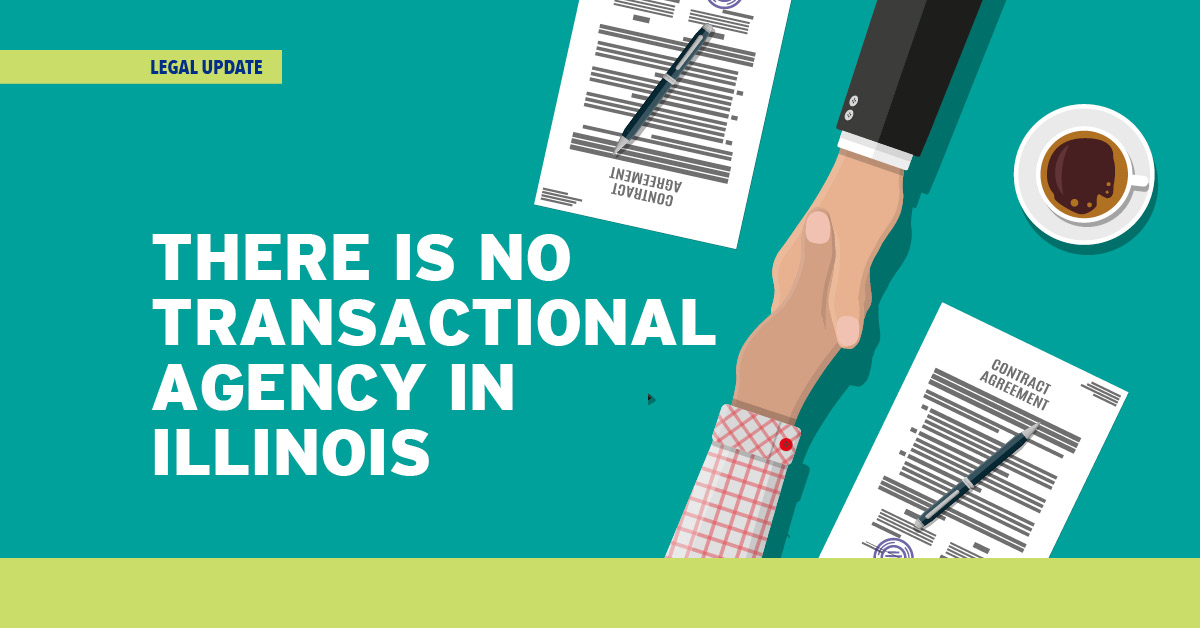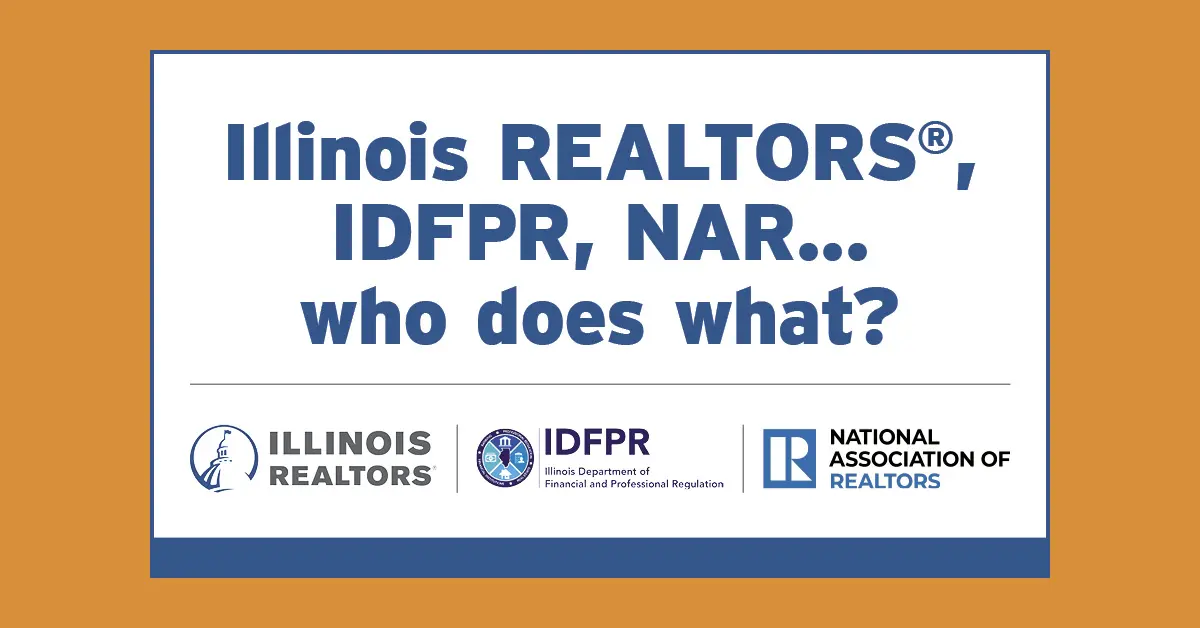In Illinois, licensees operate under the presumption of designated agency. This means the licensee is the legal agent and owes fiduciary-like statutory duties to the client with whom she is working. These duties are set forth in Section 15-15 of the Act: http://bit.ly/RELA_Chapter15.
Illinois licensees will act as an agent representing a client or they will treat that consumer as a customer, giving the requisite Notice of No Agency. Finally, they might serve in the limited capacity of disclosed dual agent. There is no specific provision in the Act allowing the licensee to assist opposing parties to a transaction as a “non-agent,” a “facilitator” or a “transactional agent.” When treating an unrepresented party as a customer and giving the Notice of No Agency, the licensee represents the other party to the transaction. In this situation, the licensee while fulfilling agency duties to her own client might perform certain limited or clerical functions for the customer on the other side in order to help her assist her own client. These limited or clerical functions are known as ministerial acts. Ministerial acts, while defined in the Act, are not a stand-alone form of non-agency. They are merely a defined term within the Act to describe clerical activities.
There are additional dangers in trying to be no one’s agent. First, consider the situation where the buyer and seller come to the agent asking the agent to “do the paperwork” on a transaction that has already been completely negotiated between the parties without any broker. Now, they are asking the licensee to put this transaction into writing. To this point, no brokerage services have been performed. The concern here is that the broker is outside the protections of the common law in Illinois related to the unauthorized practice of law, where the broker could complete business and factual information on a purchase contract form that is commonly used in the community where this is done incidentally to acting as a broker in the transaction. [Chicago Bar Association v. Quinlan and Tyson, Inc. 34 Ill.2d 117, 1966]. Second, there is a concern that where the licensee tries to contract away the statutory duties of the Act, when called into question, a court would hold the licensee to an even higher, or common law fiduciary duty to the consumer.
The important lesson here is licensees will be representing one party or the other in a transaction as their designated agent. The licensee might treat the other, unrepresented party as a customer in order to facilitate the transaction for her own client. Or she might limit her role and act as a disclosed dual agent to assist a transaction. When this is the case, the licensee, acting as a properly disclosed dual agent, owes each party statutory duties, including the duty of confidentiality.




 Create professional development programs that help REALTORS® strengthen their businesses.
Create professional development programs that help REALTORS® strengthen their businesses.
 Protect private property rights and promote the value of REALTORS®.
Protect private property rights and promote the value of REALTORS®.
 Advance ethics enforcement programs that increase REALTOR® professionalism.
Advance ethics enforcement programs that increase REALTOR® professionalism.
 Protect REALTORS® by providing legal guidance and education.
Protect REALTORS® by providing legal guidance and education. Stay current on industry issues with daily news from Illinois REALTORS®, network with other professionals, attend a seminar, and keep up with industry trends through events throughout the year.
Stay current on industry issues with daily news from Illinois REALTORS®, network with other professionals, attend a seminar, and keep up with industry trends through events throughout the year.






